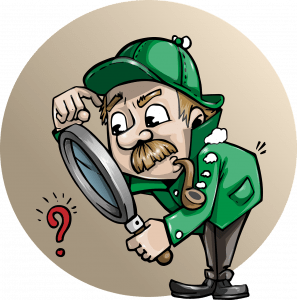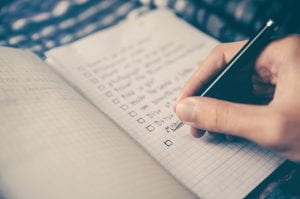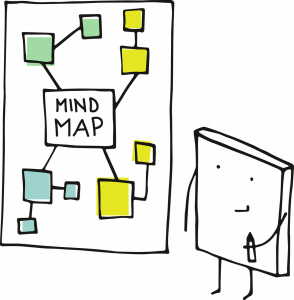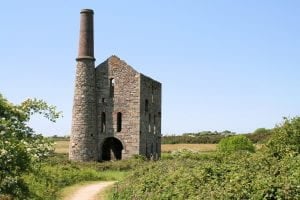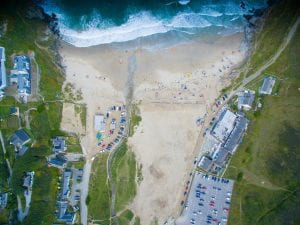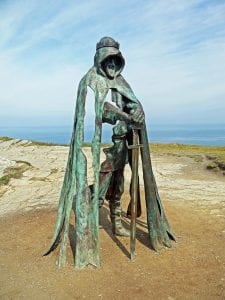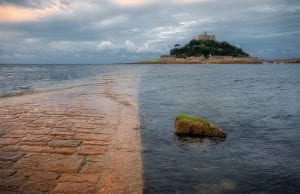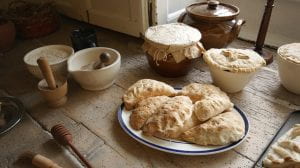Each state of Australia has records in their libraries and archives but many towns have their own historical society and they also have records available for their particular area. A list of many family history societies is found at the AFFHO website – Australasian Federation of Family History Organisations. Alona Tester has also put together a 75 page list of Australian and New Zealand History and Genealogy Facebook groups.
Family history societies are a great and sometimes under utilised resource.

Do you belong to a family history society? How does your society share its indexes and record sets with its members and the wider community?
I belong to several societies both local and farther afield where my ancestors lived. If $ was no object I’d join even more. 🙂
I belong to quite a few Family History Societies both in Australia and in the UK. Most have a good range of resources online but some records are not digitised. In this case I sometimes use the Society’s research services
I belong to the Tasmanian Family History Society as well as Sorell Historical Society. TFHS has an index on their website you can search tasfhs.org/csi.php
I have used this index Sue. Tasmania seems to have excellent resources for family history
I had never seen this index until I started looking for links for tonight’s chat
Yes and yes. Our resources page lists what we make available on the web and more that can be accessed on site genealogy-noosa.org.au/resources
Yes, I belong to Caloundra Family History. CFH as a large collection of records on computers, maps, microfiche, etc. Members have access to this at the rooms. We have a list online of this & our books so we do get queries. caloundrafamilyhistory.org.au/library-comput…
I belong to 4 family history societies and one of the reasons I stay a member is the online resources provided by them. Oops just realised I belong to 6 societies – how could I forget Caloundra and Bribie Island
These days most societies have access to their catalogues, and some indexes, through their web pages. The best ones have ways of ensuring remote members can get the benefits even if it’s with a fixed time of research offered
I think we’ve come to expect online access after the covid experience of more being online
I only belong to Society of Australian Genealogists (or I will again when I renew. Oops.)
I joined the Maryborough Family History Society years ago and it became the first Australian Society to put records on Ancestry.com. Through the Cooroy and Toowoomba and other Societies I found records I would likely never have found
I found that the Devonport or Mersey branch also have lots of online resources tfhsdev.com/index.html
I used to belong to the Invercargill Branch of the NZ Genealogical Society, but they changed their meeting time to dinner time. I no longer miss meals for meetings. Also the topics were not of interest to me.
I tend to agree with you Margaret. This is something that some societies need to look at. The one in our town is at an inconvenient time and has been that time for decades. Lifestyles and needs change
My local branch changed their meeting day to a work day for me, so I rarely attend now unless it’s a topic or speaker I really want to hear. I’ve joined interest groups instead as they have weekend meetings/events.
I think Covid has also changed societies approach to access – there are more online meetings and access to subscription sites through your membership. Great value the last 2 years.
It’s worth remembering that many societies have social media pages where they post regularly. You can join their Facebook etc pages even if you’re not a member. What you learn might tempt you to join.
The way I’ve used the SAG records is to order files before my visit, using the online search, & then visit the archives site to view. Lucky I can do that, being in Sydney.
I belong to several family history societies, though I don’t often take full advantage of membership. Depends where I’m at in my research! Some have online indexes which have proved incredibly useful.
I belong to several family history societies in England including @GuildOneName some share things with members
I belong to quite a few Facebook groups and follow a lot such as Gairloch Museum, Scottish Indexes, etc.
Facebook groups can be very useful Margaret. I have joined some that display old photos of my ancestral places as well
if you live in regional Australia and don’t have easy access to the major society libraries, then it is essential that they cater for the needs of more remote members.
I used to be a member of Devon family history society and might need to rejoin as have found lots of dad’s new ancestors came from there devonfhs.org.uk
I sometimes join a society especially on overseas one while I am researching a family line. Depending on what is available I might keep the membership going
I was a member of Bedfordshire FH Society for many years, but let it lapse as my research interests changed for a while. Need to rejoin again as I’m back to that line again
I do this too. I usually keep my Australian ones going but dip in and out of the overseas depend on research interests at the time
I know it’s away from the question of societies but relevant archives usually have good indexes to some records as well. @travelgenee is correct – it can be a challenge to maximise our use of all the societies we join.
I also belong to the Essex Society for Family History that I joined a year ago via #rootstech. They have collections online of Parish Registers and Memorial Inscriptions. I have not made as much use of this as I should have! Need to see what else they have
I also belong to the One Place Society although my OPS is not getting far lately
Sorell also has a Facebook page and after lots of chat one time, they did include membership info and many joined.
Have always belonged to SA too genealogysa.org.au essential for South Australian record sets
Many societies now have journals available online for members some go back many years
But @GSQPresident #Toowoomba & Darling Downs FHS and Toowoomba Historical Society #Online #indexes for #records held at society allow me to plan my research ahead of time
I’m part of @IGRS_1936 which has unique databases on its website for members.
For me, one of the most valuable indexes is the Hamburg to Australia indexes and publications through @QueenslandFHS. They are gold for people with German ancestry in that time period.
I belong to Family History ACT. While most of my ancestors are Tasmanian I’ve found their special interest groups and library resources really useful esp for English ancestors further back
Also joined the Irish Genealogy Research Society because I needed to access something on their database. Have not used them much though should investigate South Carolina as I’ve discovered ancestors there going back to first settlement in 1670

Question 2: Does your society have any of its indexes/record sets online with one of the big genealogy websites? Are there benefits to this? Do you think users realise these were created by society members?
We are now indexing even more at Cooroy-Noosa Sharn. Currently doing photos from 10 years of newspapers 1985-96
Another thing to consider/ask whether your local society sends out the e-journals from other societies. Perhaps another way to access your area of interest? Caloundra FHS does this.
as WebWeaver at Fellowship of First Fleeters website I have been working on improving findability of our records & journals back to 1968 fellowshipfirstfleeters.org.au
Our society does not have anything with the big genealogy companies
I am running a workshop on Thursday afternoon at Sorell FHS on the blog I am using for my one place study. Hoping to get some of the participants to write some posts for the A-Z challenge. sorell200.edublogs.org
Another benefit of a local society is that they often have publications relating to their area. Toowoomba and Darling Downs FH Society is an excellent example of this. Check out publications and shop on a society’s page.
I have been taking note of Ancestry’s American sources when researching my New England US ancestry
I don’t think most users look at where the data comes from. Society members might notice but people usually cite Ancestry or whoever without acknowledgement of the original source
I always check Shauna but that is because I add sources to my tree and blog posts. I find it interesting to see where data is sourced from
My guess is that most users of the big sites haven’t a clue who has done the indexing. This is a shame as it might encourage people to see more of the benefits of a society. They don’t realise that members have put a lot of time & effort into the indexes.
I have joined American Ancestors americanancestors.org which covers New England – great online resources – some of these available via Ancestry
I’m sure most users, maybe just casual users, don’t realise society records on the big genealogy sites have been submitted by society members
There are $ benefits to the society for having their indexes with the big sites and also for users who don’t want to/haven’t joined the relevant society as otherwise they may not have a clue they exist.
Two of them do but the other 2 don’t have their resources in subscription sites. This is so the data is exclusive to their members and a reason to join.
I think Covid has also changed societies approach to access – there are more online meetings and access to subscription sites through your membership. Great value the last 2 years
Online meetings and access has been a great highlight of the past two years. =Being regional, I hope it continues
Me too Jennifer. Access to so much more including those free documents from the National Archives UK. One of the few Covid benefits
Caloundra Family History has indexes they created online with Ancestry. Benefits include access to Ancestry at the rooms for a set period of time. Ancestry acknowledges “Original data: Caloundra Family History Research Inc.” & includes research tips.
Sorell also has a Facebook page and after lots of chat one time, they did include membership info and many joined.
I know that Hampshire and possibly Lincolnshire have indexes on Find My Past
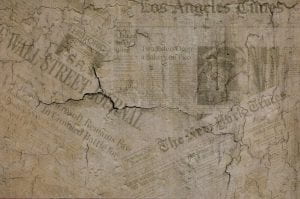
Question 3: Tell us about indexes/record sets your society holds which are unusual or unique? Have any of these led to research breakthroughs for you?
I found Scottish Indexes a great resource for my only Scottish convict
Cooroy-Noosa indexes cover 25 years of local newspaper clippings, names, organisations, clubs etc. also indexes to early tennis and bowls clubs memberships One member has indexed local land records too.
New members get toured through centre and depending on skill of research assistants (volunteers) on duty that day, should be shown everything. This week one very experienced member running a local history workshop on our resources
We do similar tours with the volunteers and volunteer training. Also give each new member a buddy to help them. They are responsive to introduce them also. Plus do workshops on what we have available. Looks like we are very similar
Illawarra Family History Group showed their resources in Wollongong City Library at its January 2022 meeting – covid restrictions mean that one on one sessions with inquirers are still not possible but emailed inquiries can be handled illawarrafhg.blogspot.com
My favourite discovery in society indexes years ago was at @GSQPresident. They had indexed the Equity files for the period immediately after Separation and I found my Kunkel ancestor there – opened up great discoveries.
With Genealogy SA I can get all the data from birth death and marriage records as part of my membership. Being able to access this data online without purchasing a certificate is really good
The answer to this question is the key differentiator that every family history society should put above the fold on their home page. Potential members need to know, what does this FHA have that I can’t get anywhere else.
Interesting point. I will have to think about what I can do to improve this. Things get pushed down the page and there loads of details on our Join us page. Perhaps a Join us button is needed.
I added a Join us to our home page, links to an online document which can be sent by email, still relying on a bank deposit. Hope to add PayPal soon genealogy-noosa.org.au/home
PayPal fees are a small extra cost though the number of members paying by credit card shows they want this. We have to start providing what members want and keep the old processes for a while also.
#queenslandFHS has indexes of Qld school pupils which can be invaluable if you have peripatetic relatives. My grandfather’s younger orphaned siblings could be found through these. You can easily see the actual register then online at @QSArchives
Caloundra FHS has an index of Railway employees which is also online. Even though I’d searched extensively in other areas I found my great-grandmother listed as a gatekeeper.
Hampshire have a Wills beneficiary index which can be very helpful
Speaking of German migration, the Ances-Tree journals of the Burwood & District society have detailed articles by the late Jennifer Paterson. These are invaluable as well as unique
Lincolnshire actually have a search facility to make it easier to find what may be available for a particular parish that they have indexed
One of our members Peter Mayberry has built a very useful website on Irish convicts to NSW but I think that has been a private effort
Peter Mayberry’s Irish convict site is one of my key go-to resources
Very few of my ancestors came to Australia however Caloundra Family History does have things like some NZ records. Again, I have not made full use of these. Being a @FamilySearch Affiliate Library gives us access to more records via our rooms.
Fellowship of First Fleeters has all its newsletters/journals back to its inception in 1968 online – these are searchable too fellowshipfirstfleeters.org.au I have found this useful for doing my own research

Question 4: Have you helped index, collect record sets, or promoted the society’s holdings?
Not really. However, I’ve written two family history articles for two historical societies in New South Wales. One is published and the other is under review. I’ve also corrected many articles on Trove, which has hopefully assisted other researchers.
It strikes me how much we now take for granted in terms of online access. It really isn’t all that long ago (20-25years) since everything was offline and required in-person visits. It’s changed the face of #genealogy research
Remember this: It strikes me how much we now take for granted in terms of online access. This is why societies indexed so much. No online indexes at archives, no Ryerson, no Trove, no online BDM or census searching. It’s changed the face of #genealogy research.
Am actively involved in 2 digitisation projects indexing stuff, and do all the website, FB and some internal promotions. too. Giving 2 more short how to Zoom workshops in March as some members still not confident.
Caloundra FH is indexing for the @naagovau presently. Has the advantage of a wider audience getting access to the indexes. Though societies need to do some local things that a national body might not be interested in to provide value to local members.
Back in the late 1980s @GSQPresident set out to index deaths in newspapers. I was allocated six months in the midst of WWI. You can imagine how many hours that took reading microfilms. Sadly the project seemed to languish somewhere. Now we have Trove
Though an index can be a quicker way to get to the source. Ryerson, for example, is good when you do not have access to the local newspapers or can chase them up later.
And it lets you get beyond the official death date indexes 😉
Indexing is a great contribution but also look among the publications to which many researchers have contributed. I have entries in the Drayton Cemetery books published by Toowoomba and Darling Downs FHS
During Qld’s sesquicentenary many Qld FHS had special projects. @GSQPresident updated an earlier project on early pioneers. @QueenslandFHS asked for stories of pioneers who arrived pre-1859. I did stories on my own ancestors + “my” German immigrants.
Making things more accessible for distant members or those unable to get to meetings is the way forward now
Yes, totally agree. The assumption that our ancestors lived in the same place as we do is less and less valid as time goes by.
I agree Hilary. I’m regional and I’ve loved being able to participate more during covid than in the past. Online is the way to go for success I’m sure
I have promoted the Fellowship of First Fleeters materials on its website and also the physical library on our Facebook page – we also have the FFF library’s catalogue on the website fellowshipfirstfleeters.org.au
Yes back in the 80s I did a lot of cemetery transcriptions with the Genealogical Society of Queensland and the Queensland Family History Society. There can be real clues on tombstones
I help promote our records via the website and we also have a FB group for members only that I must remember to share the resources we have on that so that more members become aware of them.
I have not helped with indexing as I live a distance from the area and did not have the time whilst working
Some comments about family history societies:
Following #ANZAncestryTime I’ve been looking at some #FamilyHistory Society websites. I challenge all FHS website managers to include a picture of young people engaging with #Genealogy at your society. You can’t be what you can’t see.
It would be interesting to know if society membership is going up or down. Some seem to be incredibly active now with online webinars while others don’t seem to be proactive online. Probably depends on their volunteer pool and skills.
